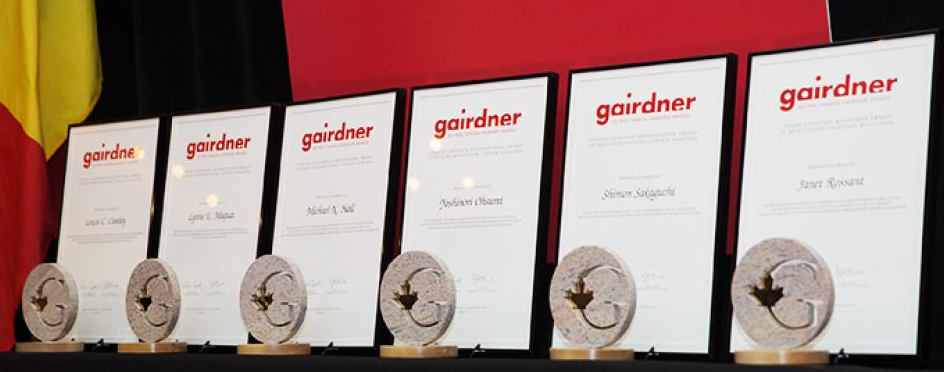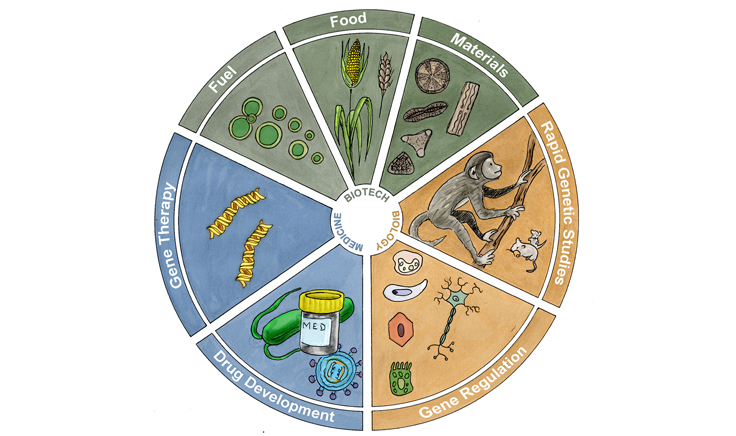CRISPR remains in the spotlight as the scientific discovery of the century. A long list of ‘inventors’ have been awarded the Canada Gairdner Awards, which recognise innovative biomedical research.
 The Gairdner Foundation (Canada) has chosen its 2016 picks for the ‘world’s best and brightest’ research in the biomedical sciences. The lucky winners this year work in the fields of HIV/AIDS and CRISPR.
The Gairdner Foundation (Canada) has chosen its 2016 picks for the ‘world’s best and brightest’ research in the biomedical sciences. The lucky winners this year work in the fields of HIV/AIDS and CRISPR.
Gairdner awards are a bit like the Golden Globes in relation to the Oscars – 82 recipients of Gairdner Awards have gone off to win the Nobel Prize. After CRISPR missed out on a Nobel in 2015, maybe it’ll be this October that CRISPR brings home a medal from Stockholm.
The Gairdner recognition in the field of CRISPR-Cas was split into two different categories – one for the description of the science behind it and another for the development of a novel gene editing tool.

Rodolphe Barrangou (US) and Philippe Horvarth (France) were awarded in particular ‘for establishing and characterizing CRISPR-Cas bacterial immune defense system‘.
Barrangou is now a professor at North Carolina State University, but worked as R&D Director at DuPont. During this period, he was the first author of the 2007 paper in Science, that experimentally demonstrated how CRISPR works as a bacterial immune system.
This was the work led by Horvarth, a senior scientist at DuPont and a sort of unsung hero in the CRISPR hype (until recently). The DuPont team used CRISPR to vaccinate its bacterial cultures against bacteriophages during food fermentation.
The Gairdner Foundation considers that it was this work that initially galvanized the research into CRISPR, setting the stage for the important technologies that were discovered using it.

On the technology side, Emmanuelle Charpentier (based in Umeå University and Max Plank Institute in Berlin), Jennifer Doudna (UC Berkeley, California) and Feng Zhang (from the Broad Institute of MIT and Harvard) received the award ‘for the development of CRISPR-Cas as a genome editing tool for eukaryotic cells‘.
These are the most commonly credited scientists for CRISPR ‘invention’ as a technology, and they (and respective research teams) are involved in a patent war – despite the characterization of other similar systems.
Quite diplomatically, the Gairdner Foundation considered the work led by Charpentier and Doudna was equivalent to the creation of a ‘molecular surgery kit‘, that is transforming the fields of molecular genetics, genomics, agriculture and even environmental biology.
As for Zhang’s work, he is highlighted as a pioneer in the engineering of eukaryotic cells, impacting the future of biology and disease research.

Other 2016 recipients were Anthony S. Fauci and Francis Plummer (aka Frank), as researchers in the HIV/AIDS field. Fauci is one of the most cited researchers of all time and has been a ‘thought leader’ in infectious diseases, with an important roles in Healthcare politics.
Plummer has published groundbreaking research in HIV transmission, which has guided both prevention policies and research into vaccines and potential cures.
But at this point, I guess most of us are also just watching for the dresses. A key technology in the emerging bioeconomy and the biohacking movement, CRISPR is undoubtedly revolutionizing Biotech – with or without a Nobel.





